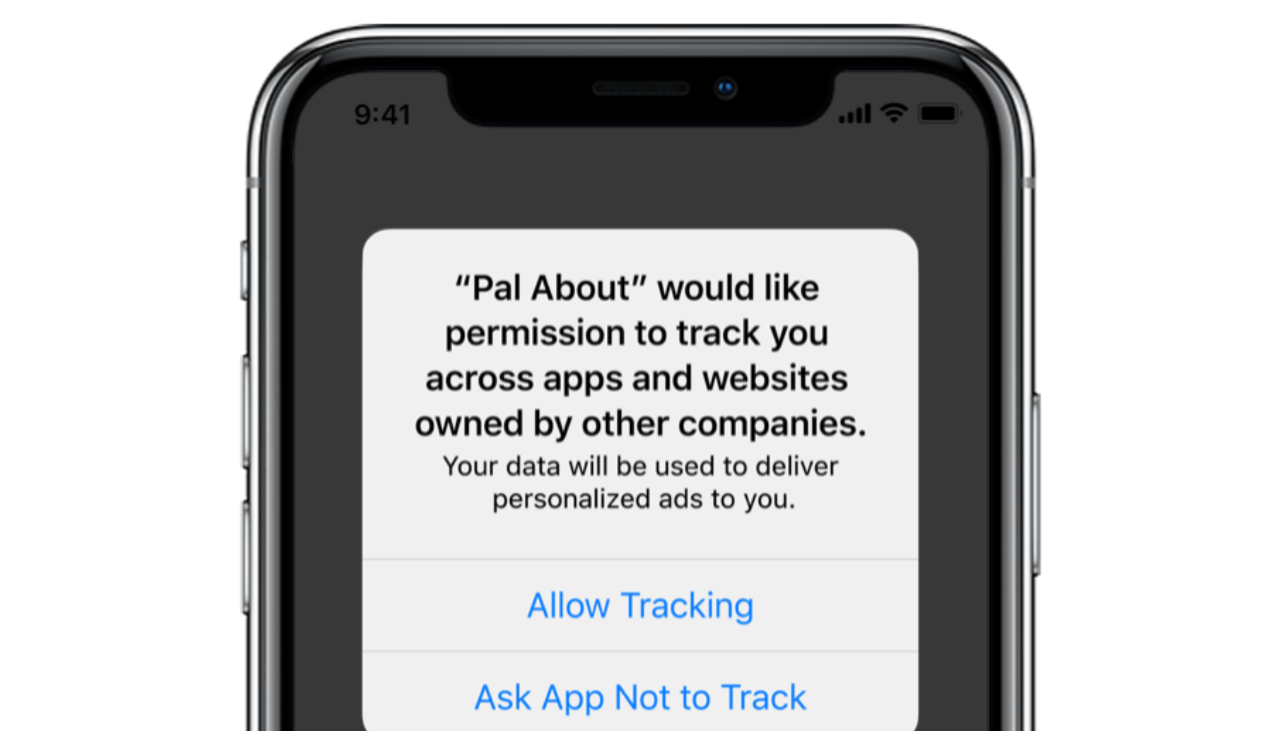As the conversation around data privacy has come to the forefront of digital advertising, we are seeing platforms, advertisers, and major players shifting to provide users with more control over their online activity and data sharing. The most recent player to make a move is Apple, with a new update to be released for iOS 14 that gives its users the option to opt in or out of app tracking.
Details around when Apple’s changes will take effect are still evolving, however, Facebook has started preparing so that advertisers are in the right place when it happens. We’ve been able to nail down the big takeaways that you need to know now:
What’s Happening
As Apple has announced iOS 14 policy updates, they have made specific changes that will reduce the ability for advertisers to target and report on in-app and website conversion events. Apple will feature a prompt in mobile apps that informs users the app wants permission to use their data for tracking with two simple buttons:

Allow Tracking or Ask App Not to Track.
This prompt will ask for the user’s permission to track them across third-party apps and websites. Users will either opt-in or out of certain data sharing. While we know this will impact Facebook, we do expect there to be implications of these changes across many digital advertising platforms. If a user opts-in to data sharing then there will be effectively no change to the data Facebook will be able to report on that particular user. If they opt-out, Apple will limit the amount of data and user behavior information that can be shared back.
Facebook’s Changes
In response to Apple’s new privacy updates, Facebook is implementing app-wide changes to how advertisers track, measure, and aggregate audiences. Some of these limitations only apply to iOS 14 users – while others are being implemented globally across tools and capabilities.
- Tracking: Advertisers are now limited to 8 conversion events per domain. These events include standard events and custom conversions, and each event must be prioritized and ranked by importance to the advertiser. For example, if an iOS 14 user opts out of tracking, and they add something to their cart and also completes a purchase, only part of that data will be sent back to Facebook.
- Optimization: While additional conversion events may be tracked and pulled in through the Facebook analytics portal, campaigns can only be optimized to the selection of the 8 conversion events.
- Measurement & Attribution:
- Going forward, 28-day click-through, 28-day view-through, and 7-day view-through attribution windows will not be supported for active campaigns. Attribution and optimization default windows will be set to 7-day click-through.
- Aggregated Event Measurement will be implemented for a user who opts out of tracking, meaning Facebook will only receive the highest ranked event from Apple for a given user’s visit. For example, if a user performs a ViewContent, AddToCart, and Purchase event during a visit, only the Purchase would be reported.
Major Impacts
These changes will impact both how we determine tracking success of campaigns as well as affect performance of any 1st-party audiences created from pixel conversion data. Once iOS 14 updates go into place, Facebook is expecting a loss of conversion reporting.
If a user opts-out via the prompt on Facebook or Instagram, both app and web events will be impacted, resulting in potentially reduced ad effectiveness and limitations on measurement.
If users opt to send their data when using Facebook apps, nothing changes related to data sent — their data is sent as normal using mobile web tracking.
The Good News
Page View events, site visitation, and audiences aggregated based on domain/url sources will NOT be impacted by these changes. (Retargeting audiences will remain unaffected) The only impact to audience sizes comes into play for any audience that is sourced from a conversion event (for example, creating an audience of Purchasers).
All desktop activity and non-iOS 14 device activity will not be impacted the majority of the limitations being rolled out. While some changes are global (such as the 8 event limit) others such as the Aggregated Event Measurement only apply to conversions being sent back from iOS 14 devices.
Next Steps
In preparation for this shift, Facebook has rolled out new requirements for advertisers to comply with Apple’s changes:
- Domain Verification – Domains must be verified for conversion tracking. Domains can only be verified by 1 Business Manager account. While domains can be shared, the verified owner is the only one that can prioritize and set up conversion events.
- Setup Event Configuration – Prioritize conversion events by order of importance, assess current pixel event mapping especially for custom conversions.
- Historical Benchmarking – Pull aggregated reporting for historical reference to benchmark attribution windows for future reporting comparisons and campaign optimizations.
Mogo is committed to keeping our affected partners updated on the coming changes from iOS 14 and how it affects other digital advertising channels. If you’re interested in participating in the conversation, Facebook encourages advertisers to speak up.
